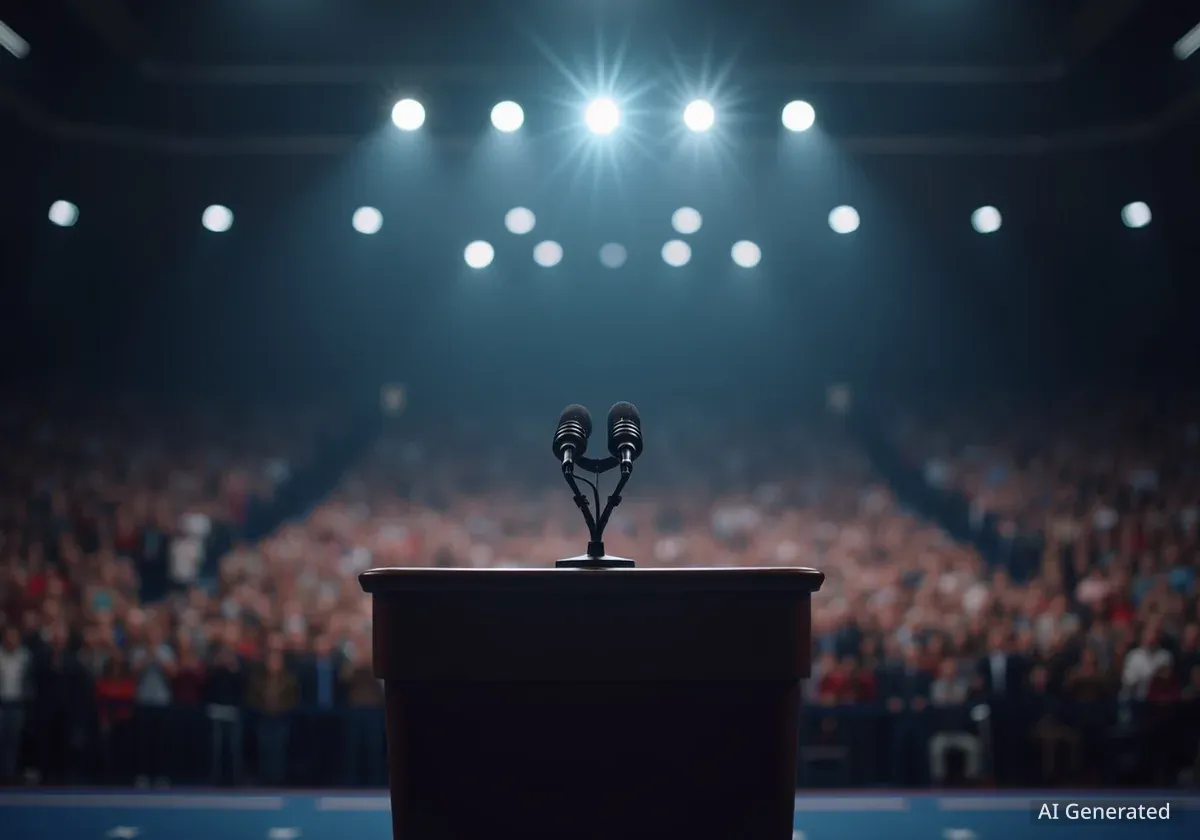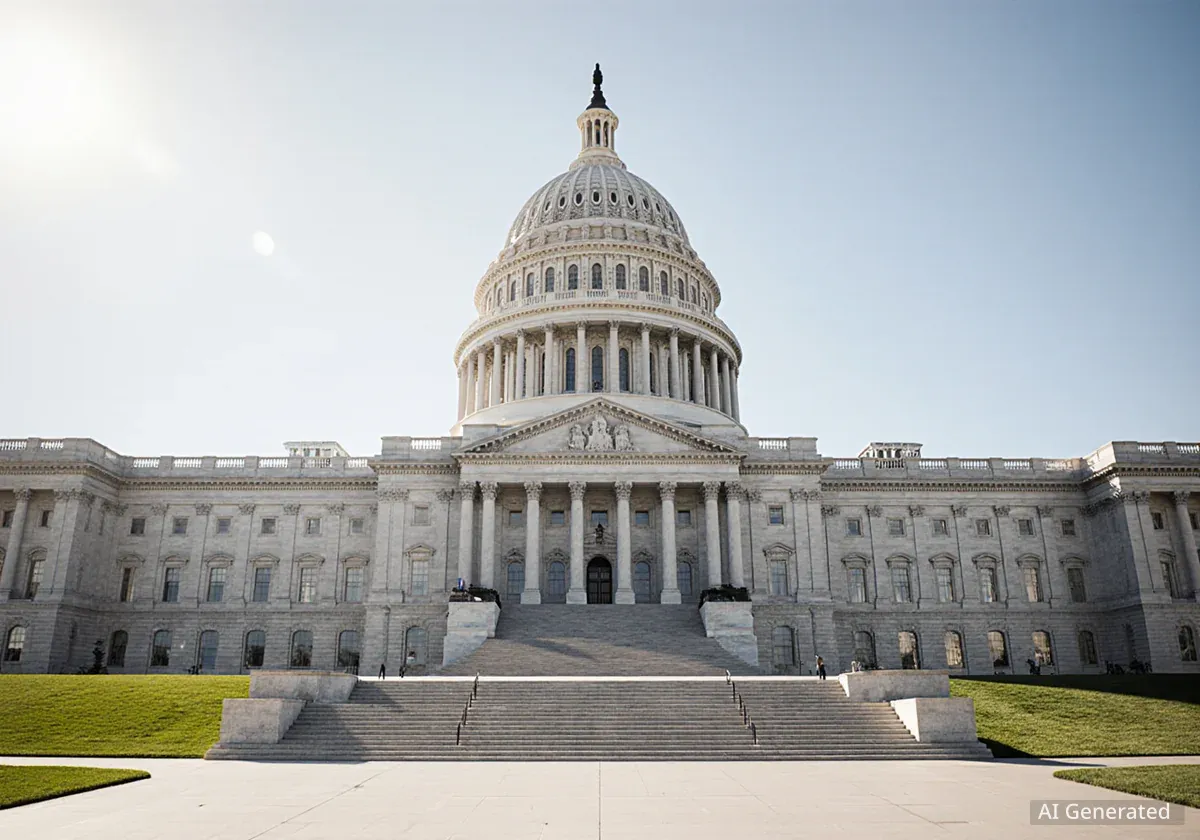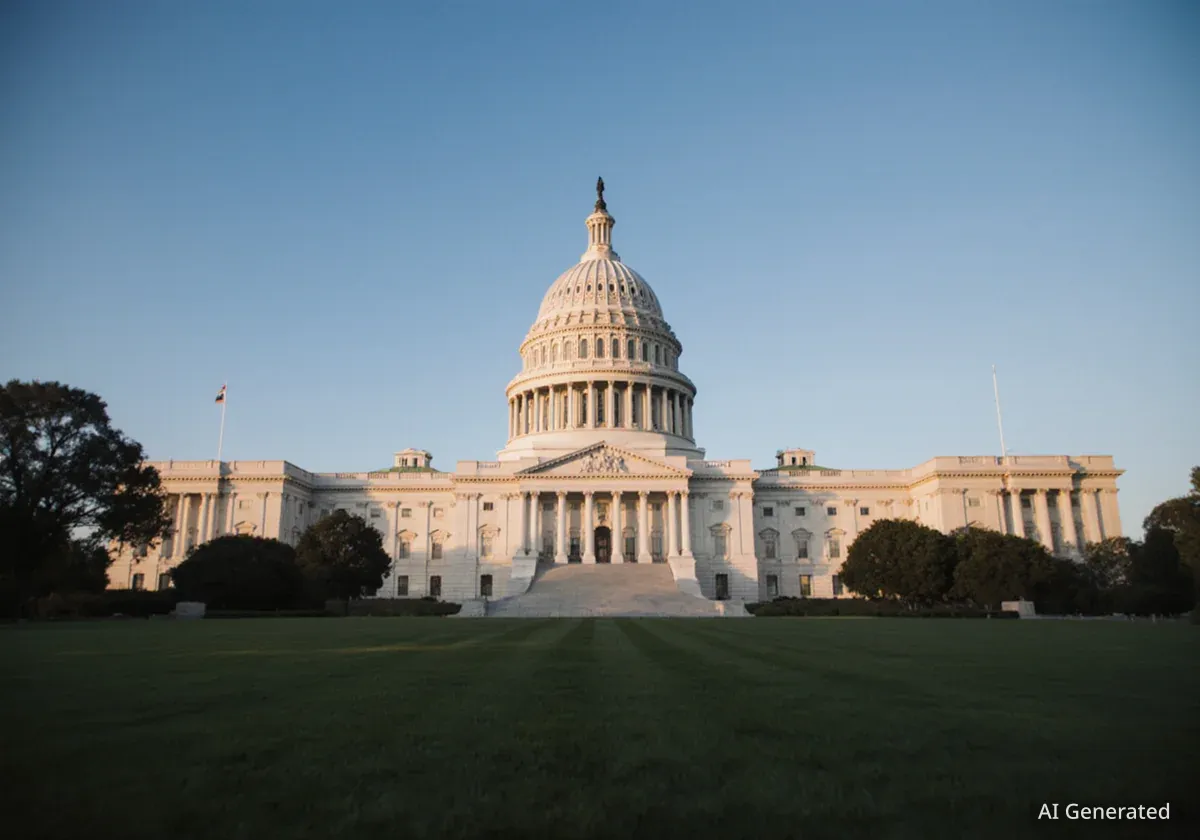A recent Gallup poll indicates a notable shift in former President Donald Trump's approval rating, revealing a decline in support among Republican voters. This change comes as the political landscape intensifies, with various legal and political challenges shaping public perception.
While Trump has historically maintained strong backing within his party, the latest data suggests a potential erosion of that base. The findings highlight how recent events and ongoing national debates may be influencing voter sentiment across the political spectrum.
Key Takeaways
- A new Gallup poll shows a drop in Donald Trump's approval rating among registered Republicans.
- The former president's overall favorability with the American public remains a key point of political analysis.
- Political strategists are closely watching how this shift could impact party dynamics and future elections.
- The change in ratings occurs amid a backdrop of significant national news, including economic policy debates and Supreme Court decisions.
The Details of the Poll
According to the latest survey conducted by Gallup, a respected public opinion polling organization, Trump's support within the Republican party has seen a measurable decrease. The poll, which surveyed a national sample of adults, provides a snapshot of the current political mood.
While specific percentages can fluctuate between polls, the trend identified by Gallup is significant. Historically, Trump has enjoyed approval ratings upwards of 90% among Republicans. A dip below this threshold, even by a few points, is considered noteworthy by political analysts.
Historical Context of Presidential Approval
Presidential approval ratings are a standard measure of public sentiment. Gallup has been tracking these ratings since the 1930s. A president's approval within their own party is often a sign of their political strength and ability to influence policy and elections. A decline in this core support can signal potential challenges for the party's agenda.
The poll's methodology involves random sampling of adults nationwide, with results weighted to match national demographics. This process is designed to ensure the findings accurately reflect the opinions of the broader population.
Factors Potentially Influencing Republican Sentiment
Several factors may be contributing to the observed shift in opinion among some Republican voters. The political environment is rarely static, and recent events have created a complex backdrop for public opinion.
Ongoing Legal and Political Issues
The former president is at the center of multiple legal cases and political discussions. These topics receive extensive media coverage and are a constant part of the national conversation. Issues ranging from government policy debates to Supreme Court involvement in politically charged cases have kept Trump's actions in the spotlight.
For instance, discussions around the federal government's role, such as the deployment of troops to cities like Portland during protests, have sparked debate even within conservative circles. Similarly, decisions from the Department of Justice and the FBI often become politicized, influencing how party members view political figures.
Public Opinion and Major Events
Studies have shown that major national events, such as economic downturns, international conflicts, or significant legal rulings, can cause rapid shifts in a president's approval rating. Voter perception is often tied to their feelings about the country's direction and the leader's handling of crises.
The constant news cycle ensures that these issues remain at the forefront of voters' minds, potentially leading to a re-evaluation of their support for political leaders.
Broader Political Implications
A change in Trump's approval rating, especially within his own party, could have wide-ranging implications. It may affect everything from primary races to the overall strategy of the Republican party moving forward.
Political strategists suggest that any perceived weakness in Trump's base could embolden other potential candidates within the party. It might also change how current Republican officeholders align themselves with the former president.
"When a political figure's core support begins to show cracks, it creates a new dynamic. Other leaders within the party start to test the waters and a period of realignment can begin," one political analyst noted in a recent commentary.
The situation also has implications for the Democratic party, which will be closely monitoring any shifts in the opposition's internal cohesion. The ability of the Republican party to present a united front is a key factor in national elections.
Economic and Social Issues at Play
Beyond headline-grabbing political stories, everyday economic and social concerns also shape voter opinions. Issues like inflation, interest rate changes by the Federal Reserve, and trade tariffs have a direct impact on American households.
For example, tariffs imposed on consumer goods can affect household budgets, while Fed rate cuts influence borrowing costs for mortgages and loans. These kitchen-table issues are often more influential than abstract political debates for many voters.
A List of Influential Factors
- The Economy: Perceptions of personal financial well-being and the national economy.
- Social Policy: Debates over issues like birthright citizenship and healthcare.
- Public Safety: Concerns about crime and law enforcement policies.
- Foreign Relations: The country's standing on the global stage.
These persistent concerns contribute to the overall political climate and can slowly but surely influence a voter's long-term allegiance to a political figure or party. The Gallup poll may be capturing the cumulative effect of these various pressures on the electorate.
As the political season continues, all eyes will be on subsequent polls to see if this trend continues, stabilizes, or reverses, providing a clearer picture of the American political landscape.





